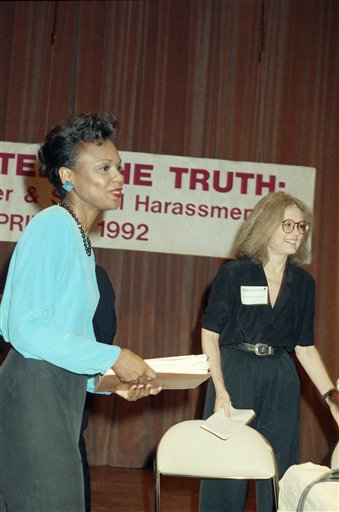Efforts to address and eliminate sexual harassment in the workplace sometimes result in tension between the demands of the equal protection clause of the Fourteenth Amendment to eliminate discrimination and the First Amendment free speech rights of individuals at work.
This situation has led some observers to argue that the enforcement of sexual harassment laws has resulted in censorship through political correctness.
In Meritor Savings Bank, FSB v. Vinson (1986), the Supreme Court declared sexual harassment to be a form of sex discrimination under Title VII of the Civil Rights Act of 1964.
Hostile environment claims of sexual harassment may implicate First Amendment
The Equal Employment Opportunity Commission (EEOC) defines sexual harassment in two ways.
First, sexual harassment is unwanted sexual advances or requests for sexual favors linked to an individual’s employment. Under this definition, a demand that one provide sexual favors or face termination is a clear instance of quid pro quo sexual discrimination. The same would be true if sexual demands were made as a condition of being hired or promoted. These instances do not implicate the First Amendment.
The second EEOC definition of sexual harassment is a situation in which sexual advances or comments unreasonably interfere with an individual’s work performance such that it creates an intimidating, hostile, or offensive work environment. Under this hostile environment test, a person may be able to claim sexual harassment even if he or she is not sexually propositioned; for instance, a workplace may qualify as hostile if it includes language, pictures, or behavior that are sexual in nature and interfere with performance.
Hostile environment claims may implicate the First Amendment.
Federal judge in Florida case upheld sexual harassment claim despite arguments of free speech
In Robinson v. Jacksonville Shipyards (M.D. Fla. 1991), a federal district court ruled that the posting of sexually explicit pictures and sexually derogatory comments directed at a worker constituted sexual harassment. In its opinion, the court undertook a significant review of First Amendment concerns in enforcing sexual harassment claims.
It held that this type of speech was not protected because it constituted discriminatory conduct. In addition, the court noted that speech has never been given absolute protection in the workplace, and given that employees are a captive audience while at work, efforts to limit sexually charged speech are reasonable time, place, and manner restrictions.
Other courts have effectively followed the arguments made in Jacksonville Shipyards, finding that certain forms of sexual communication in the workplace are not protected speech and constitute a form of discriminatory conduct. Although some critics of this decision and sexual harassment law contend that efforts to root out discrimination have produced a PC work atmosphere, others contend that the efforts to balance speech and conduct have properly sided with victims from unwanted sexual intimidation.
This article was originally published in 2009. David Schultz is a professor in the Hamline University Departments of Political Science and Legal Studies, and a visiting professor of law at the University of Minnesota. He is a three-time Fulbright scholar and author/editor of more than 35 books and 200 articles, including several encyclopedias on the U.S. Constitution, the Supreme Court, and money, politics, and the First Amendment.

